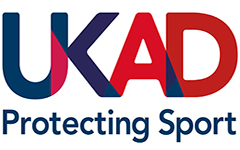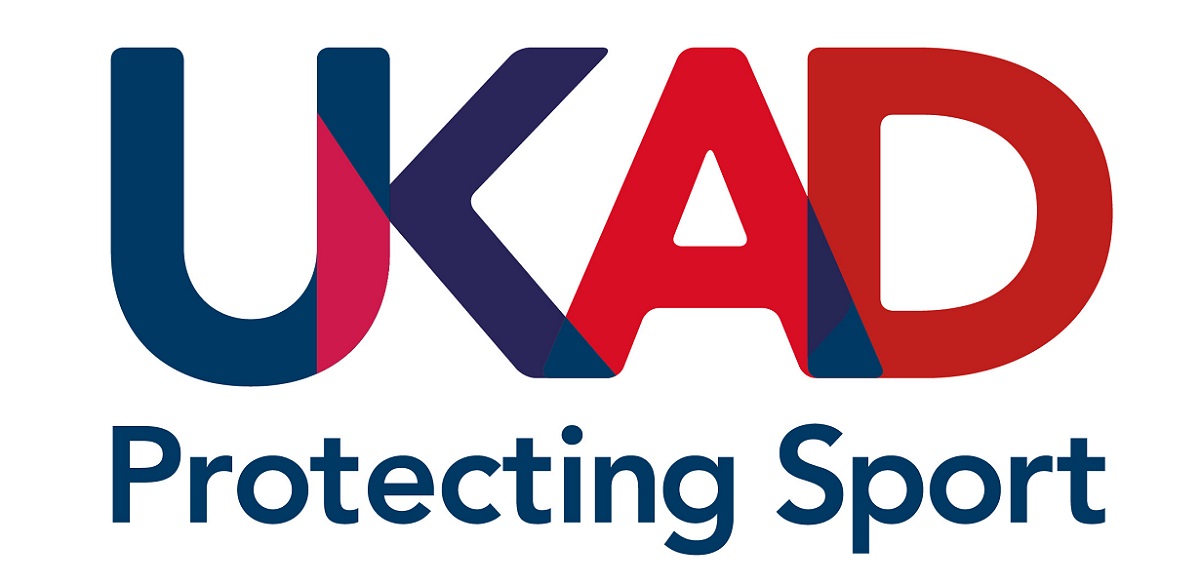Former British Cycling and Team Sky doctor Richard Freeman receives ban from sport for Anti-Doping Rule Violations
- Dr Richard Freeman violated the UK Anti-Doping Rules by (1) taking possession of an order of 30 sachets of Testogel (i.e. testosterone gel) at the National Cycling Centre in Manchester, in May 2011, and (2) lying to UKAD in respect of that order.
- By way of a decision of the independent National Anti-Doping Panel in July 2023, Dr Freeman received a four-year ban from sport.
UK Anti-Doping (UKAD) has today confirmed that former British Cycling and Team Sky doctor Richard Freeman has been banned from all sport for four years after the independent National Anti-Doping Panel found he committed the Anti-Doping Rule Violations of ‘Possession of a Prohibited Substance’ and (on two distinct occasions) ‘Tampering’.
In September 2016, UKAD commenced an investigation after receiving information that a possible Anti-Doping Rule Violation may have been committed by individuals associated with Team Sky in connection with the Critérium du Dauphiné, a professional cycling event, in June 2011. The possible violation in question concerned the alleged contents of a package (widely referred to as ‘the Jiffy bag’) that was delivered to Dr Freeman at the end of the event.
During the course of UKAD’s investigations into those matters, UKAD’s investigators uncovered that a delivery of 30 Testogel sachets had been made to British Cycling’s Headquarters, at the Manchester Velodrome in May 2011. Testogel is a prescription-only medication that contains the banned substance testosterone which, under the UK Anti-Doping Rules, is prohibited at all times. Each of the violations proved by UKAD in its proceedings before the independent National Anti-Doping Panel concern this Testogel delivery.
As part of its investigation into the Testogel, UKAD interviewed Dr Freeman in February 2017. In interview, Dr Freeman claimed to have ordered the Testogel for a ‘non-rider’ member of British Cycling staff, but said that the Testogel had been returned to the supplier for destruction. Dr Freeman failed to name the ‘non-rider’ patient who he claimed the Testogel was for, relying on patient confidentiality. He claimed that he had written to the patient asking them to waive confidentiality and they had refused to consent to matters being discussed with UKAD. UKAD, however, continued to investigate matters relating to the Testogel – including in particular Dr Freeman’s account that the order had been placed for a ‘non-rider’ member of British Cycling staff. Evidence obtained by UKAD indicated that the Testogel had not been returned to the supplier as Dr Freeman claimed. In April 2017, UKAD made a referral to the General Medical Council (GMC) in respect of UKAD’s concerns relating to Dr Freeman’s conduct and fitness to practise.
The GMC then investigated Dr Freeman and went on to commence a case before the independent Medical Practitioners Tribunal Service (MPTS) in October 2019. In March 2021, an MPTS tribunal found proven the allegation that Dr Freeman ordered testosterone, ‘knowing or believing’ it to be for an unnamed rider in May 2011 to improve their athletic performance. It was also found proven that he had lied to UKAD under investigation when claiming that the Testogel had been ordered for a ‘non-rider’ patient and had been returned to the supplier. The MPTS tribunal erased Dr Freeman from the Medical Register, a decision which was subsequently upheld by the High Court on appeal by Dr Freeman.
On 22 December 2020 (whilst the MPTS hearing was ongoing), UKAD provisionally suspended Dr Freeman and charged him with the commission of Anti-Doping Rule Violations. He was charged with an Article 2.6 violation under the 2009 UK Anti-Doping Rules for ‘Possession of a Prohibited Substance’, namely testosterone, in connection with an Athlete, Event or training. UKAD also charged Dr Freeman with two separate Article 2.5 violations under the 2015 UK Anti-Doping Rules for ‘Tampering’. The first Tampering violation concerned Dr Freeman knowingly providing UKAD with false information that the Testogel had been returned to the supplier. The second Tampering violation concerned Dr Freeman knowingly providing UKAD with false information that he had written to a non-rider member of staff requesting that they waive patient confidentiality and claiming that they had refused to do so.
An independent tribunal of the National Anti-Doping Panel convened in July 2023 to consider UKAD’s case against Dr Freeman and found all charges proven. The tribunal was comfortably satisfied that Dr Freeman had ‘intended to make available to one or more of his athletes the Prohibited Substance delivered to the Manchester Velodrome'. Whilst Dr Freeman had accepted that he had lied to UKAD about returning the Testogel to the supplier, he maintained that he had written to a non-rider member of staff requesting that they waive patient confidentiality and that they had refused to do so. The independent tribunal found that UKAD had also proved the second Tampering violation against Dr Freeman whose ‘conduct subverted Doping Control'.
The independent tribunal of the National Anti-Doping Panel sanctioned Dr Freeman with a four-year ban, effective from 22 December 2020 (the date of his provisional suspension), making him ineligible to participate in any World Anti-Doping Code-compliant sport until 21 December 2024.
Jane Rumble, UKAD’s Chief Executive added, “The decision of the independent tribunal of the National Anti-Doping Panel confirms that Richard Freeman broke the UK Anti-Doping Rules. The rules are in place to make sure everyone plays their part in keeping sport clean and to ensure a level playing field.
“The outcomes of both UKAD and the GMC’s respective investigations were vital to outing the truth in this matter. This case sends a strong message to all athlete support personnel that the rules apply equally to them, just as they do to athletes, and that they have a clear responsibility to uphold the values of integrity in sport. When they fail to do so, every effort will be taken to ensure that the rules are enforced.”
Mario Theophanous, Head of UKAD’s Intelligence and Investigations Team, who led UKAD’s investigation into Dr Freeman:
“This was a complex and comprehensive investigation to ascertain whether any wrongdoing had been committed, working with individuals who bravely came forward to give information to protect the values of their sport.
Every piece of information, no matter how small, can make the difference in a complex case like this, building enough evidence to hold to account those who choose to break the rules. I would like to place on record my thanks to all those individuals who placed their trust in UKAD and provided evidence that led to this result. I encourage anyone who has concerns around doping activity in sport, to report it to UKAD via our Protect Your Sport initiative.”
Frank Slevin, British Cycling Chair said: “We note today's verdict from the National Anti-Doping Panel and thank them for the time and consideration put into reaching their decision. Throughout this case we have reiterated our belief that it is in public interest that all matters are heard and thoroughly examined, and have made every effort to support both UK Anti-Doping and the General Medical Council in their respective investigations.
“As we have stated previously, Richard Freeman’s conduct during his employment by British Cycling bore no resemblance to the high ethical and professional standards which we, our members and our partners rightly expect.”
Notes to Editors
UK Anti-Doping investigation timeline:
- September 2016, UKAD opens an investigation into alleged wrongdoing within cycling after reports that a package (widely referred to as ‘the Jiffy bag’) had been delivered to Dr Freeman while working for Team Sky at the 2011 Critérium du Dauphiné, a professional cycling event.
- During the Jiffy bag investigation, UKAD’s investigators uncover a delivery of Testogel ordered by Dr Freeman in May 2011 to British Cycling’s Headquarters at the Manchester Velodrome.
- 17 February 2017, in interview Dr Freeman intentionally misleads UKAD’s investigators, telling them the Testogel had been returned to the supplier for destruction. Dr Freeman claimed that he had ordered the testosterone for a ‘non-rider’ member of staff.
- March 2017, Dr Freeman instructs his solicitors to inform UKAD that he had written to that ‘non-rider’ member of staff requesting that they waive confidentiality, and that that member of staff had responded unequivocally advising Dr Freeman that they would not waive confidentiality.
- While investigating these Testogel allegations, UKAD discovers evidence relating to Dr Freeman’s fitness to practise medicine, which includes absent and irregular medical record-keeping.
- 7 April 2017, UKAD submits a formal referral to the General Medical Council (GMC), the regulatory body that regulates practising doctors in the UK.
- 29 October 2019, Dr Freeman’s hearing before an independent tribunal of the Medical Practitioners Tribunal Service (MPTS) begins.
- The GMC investigated allegations relating to Dr Freeman’s ordering of a banned substance Testogel in May 2011, knowing or believing that it was to be administered to an athlete to improve athletic performance, together with matters of dishonesty connected to the ordering of the Testogel. It also investigated allegations relating to clinical concerns from non-riders at the time, and concerns with Dr Freeman’s record management.
- 22 December 2020, (whilst the MPTS hearing is ongoing) UKAD provisionally suspends Dr Freeman and charges him with the commission of Anti-Doping Rule Violations. He is charged with an Article 2.6 violation under the 2009 UK Anti-Doping Rules for ‘Possession of a Prohibited Substance’, namely testosterone, in connection with an Athlete, Event or training. UKAD also charges Dr Freeman with two separate Article 2.5 violations under the 2015 UK Anti-Doping Rules for ‘Tampering’.
- 12 March 2021, the MPTS hearing concludes.
- It is found proven that Dr Freeman ordered testosterone, ‘knowing or believing’ it to be for an unnamed rider in May 2011. It is also found proven that he lied to UKAD whilst under investigation.
- Dr Freeman is erased from the General Medical Council’s Medical Register.
- The Medical Practitioners Tribunal Service hearing decision is available here: Richard Antony FREEMAN (2854524) - Doctors details page - GMC (gmc-uk.org)
- 1 June 2021, UKAD confirms that its proceedings against Dr Freeman are paused after Dr Freeman lodges an appeal against the decision of the independent tribunal of the MPTS at the High Court.
- 16 January 2023, Dr Freeman loses his High Court appeal against the decision of the independent tribunal of the MPTS.
- Following confirmation of the outcome of the High Court appeal, UKAD immediately resumes its proceedings against Dr Freeman before the independent National Anti-Doping Panel.
- 20 July 2023, UKAD’s case against Dr Freeman is determined by an independent tribunal of the National Anti-Doping Panel, which finds all charges proven and bans Dr Freeman from all World Anti-Doping Code-compliant sport for four years.



